The illustrations of Polish artist Pawel Kuczynski, without exaggeration, can explain almost everything in the world. Several years ago, SFG Media published an interview with Pawel, where we tried to uncover how he manages to so precisely depict contemporary phenomena and events that surround and affect us. This interview was published before the coronavirus pandemic, global lockdown, and the beginning of the war in Ukraine. We decided to revisit Pawel’s works to better understand and analyze the terrifying events of recent years.
Pawel Kuczynski: Analysis
To analyze Pawel Kuczynski’s works, we selected themes he frequently addresses. Whether he considers them globally significant or they naturally become more relevant over time, we cannot say. However, their relevance seems to persist across generations.
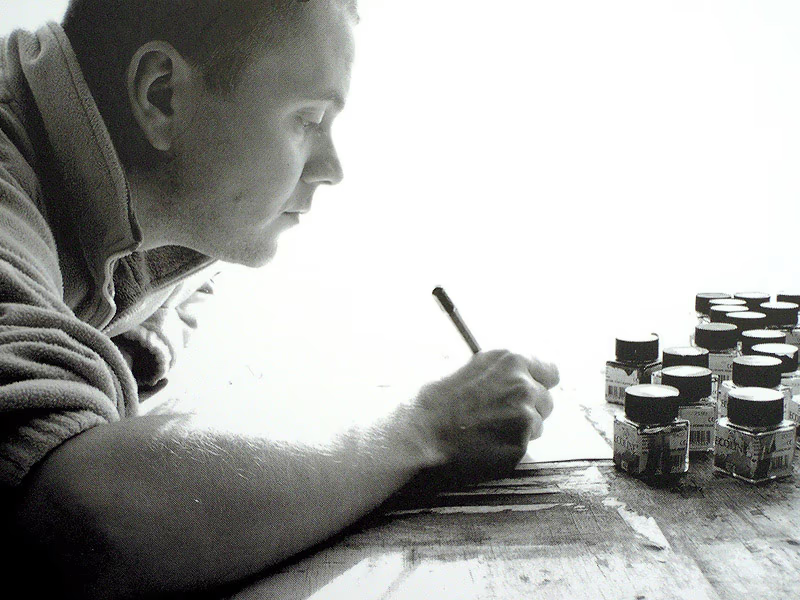
The Pursuit of Knowledge
This theme goes beyond education. Essential knowledge can be acquired independently through books and interactions with others. It’s a challenging process that the artist often portrays as climbing a mountain or engaging in hard labor. In contrast, time spent online or scrolling through social media is depicted as a less significant activity that doesn’t contribute to self-improvement, despite what many believe. Through such interpretations, we can infer that Pawel Kuczynski advocates for systematic, fundamental knowledge that enriches both individuals and the world around them. The artist persistently reminds us that words and knowledge have the power to transform our lives.

Social Inequality
In the 21st century, conversations about equality are widespread. Prioritizing candidates based on race is frowned upon; assuming certain nationalities exist to serve the comfort of others is unacceptable; and gender equality shouldn’t even be up for debate. Such statements and more are frequently heard. But is this truly the reality? Pawel Kuczynski addresses these questions in several illustrations. They reveal not only the persistent existence of these inequalities but also the emergence of many others that accompany them.

Internet Privacy
Internet privacy and the protection of personal data have only recently gained attention as critical issues monitored by governments. As with any field involving money, there are those who exploit it for dishonest gains: collecting contact information for resale and spam campaigns, using private photos for blackmail, or stealing banking details to drain personal and credit accounts. Through his illustrations, Pawel Kuczynski aims to clearly explain the consequences of neglecting online safety rules and how malicious actors exploit such vulnerabilities.

Addiction to Gadgets
When someone claims, "Gadgets are harmful", the typical response is skepticism due to a lack of research and compelling evidence. This is true—there are no definitive studies proving that smartphones, tablets, and computers harm people. And why would there be? Technology helps us solve major and minor challenges, both everyday and strategic, personal and global. No one disputes this. However, concerns about gadget addiction often refer to different issues, such as the loss of concentration. Here’s how it works: scrolling through TikTok, for example, forces your brain to shift focus every few seconds. It doesn’t have time to process information, as the process is interrupted and redirected. Those who overindulge in this find it harder to read and study. The list of such negative effects is long and continues to grow based on observations of younger generations born in the digital age. That said, we cannot ignore the enormous role gadgets play in improving education quality. The key is balance. Pawel Kuczynski’s illustrations emphasize that gadgets shouldn’t completely replace everything around us. Instead, they should be tools for enhancement rather than substitution.
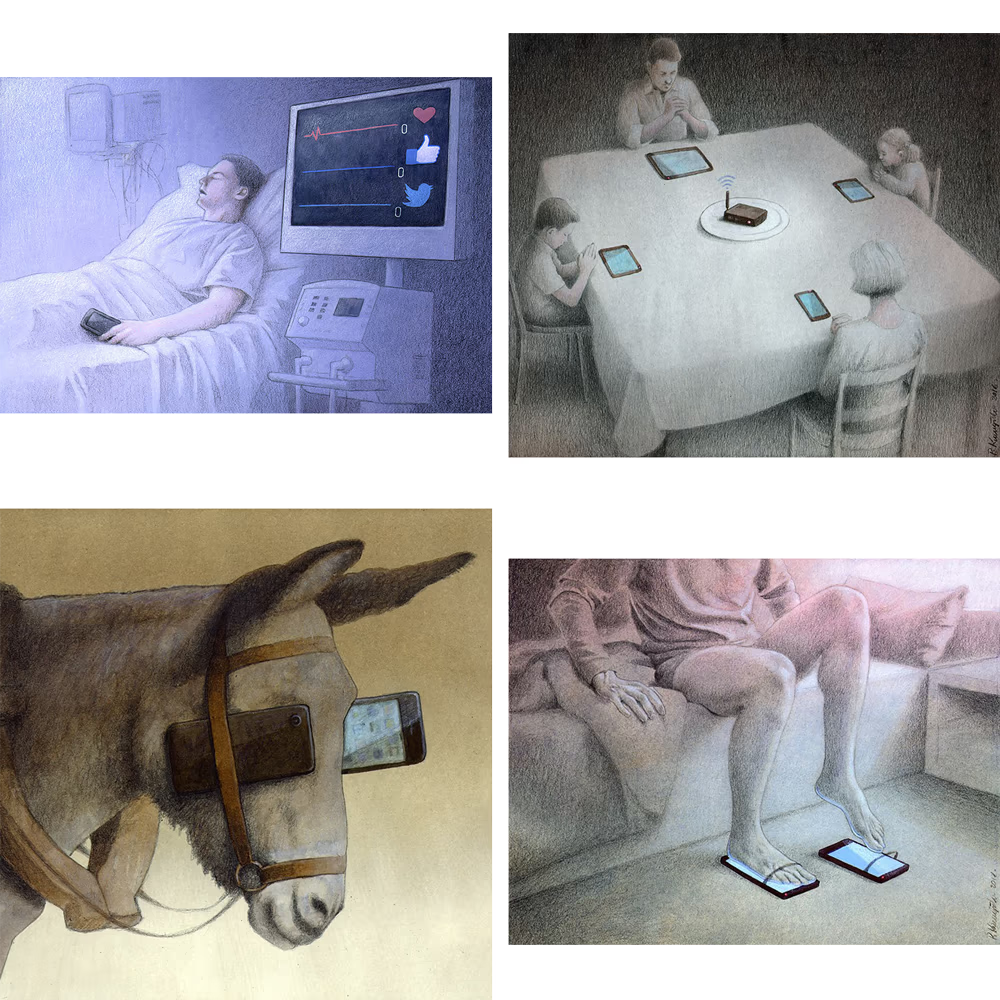
Estrangement
One of the most striking phenomena of recent years is the growing distance between people. Some even claim, "Society is no longer a society but merely individuals striving to keep others out of their personal space". What is undeniable is that today, individuals have a choice—whether to be an active part of society or to prefer solitude. Pawel Kuczynski reflects this phenomenon in his works, emphasizing its growing significance.
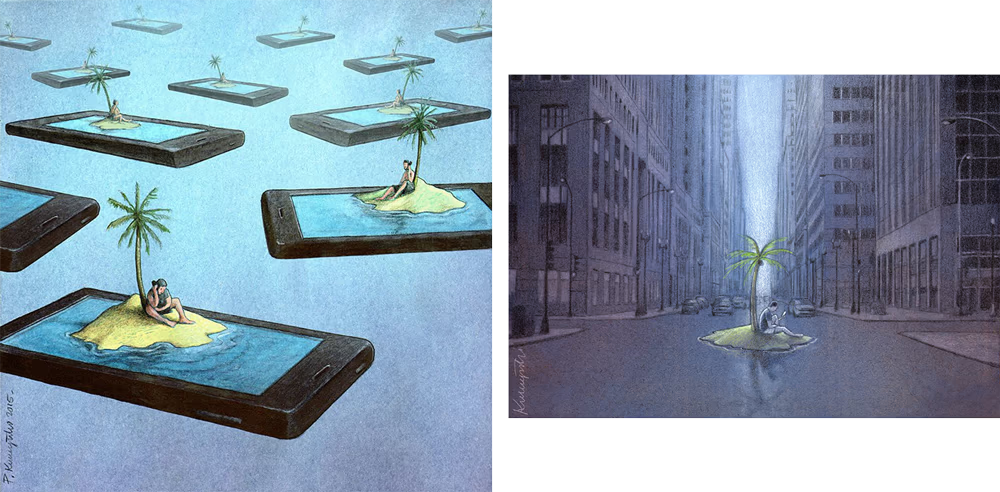
Political Rhetoric
Politicians often make public statements designed to achieve their desired outcomes. These declarations are not linked to tangible actions that follow but are crafted for immediate effect. Such rhetoric is commonly referred to as empty or "garbage". Pawel Kuczynski illustrates these figures, highlighting that their words carry no real weight.
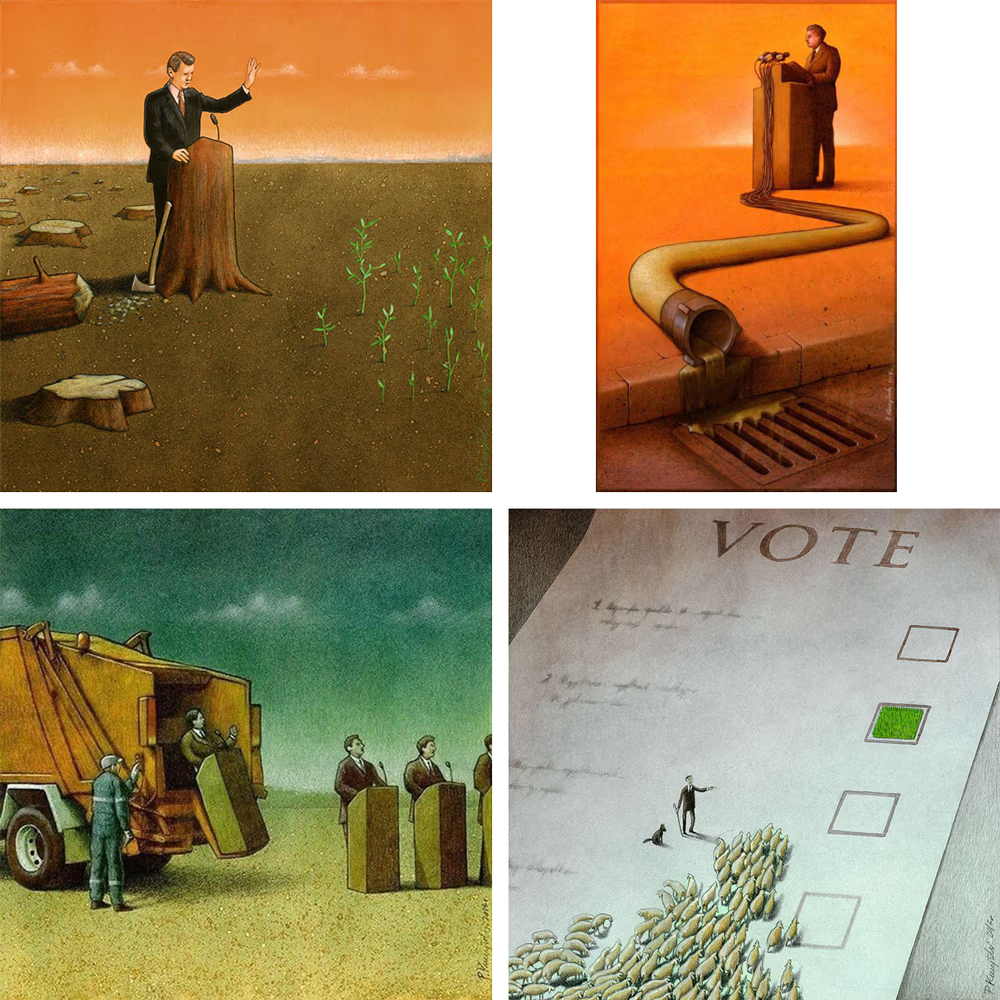
Propaganda
The favorite tool of all totalitarian regimes and a cornerstone of every dictator. In today’s world, propaganda infiltrates any sphere where it can influence people, shape a desired worldview, justify any actions, and conceal crimes. By skillfully manipulating facts and history, propagandists create enemies, portray their country as superior to others, and even when alternative perspectives exist, they insist on being the sole bearers of truth. Pawel Kuczynski portrays propagandists as one of the most vile phenomena present in various nations today.
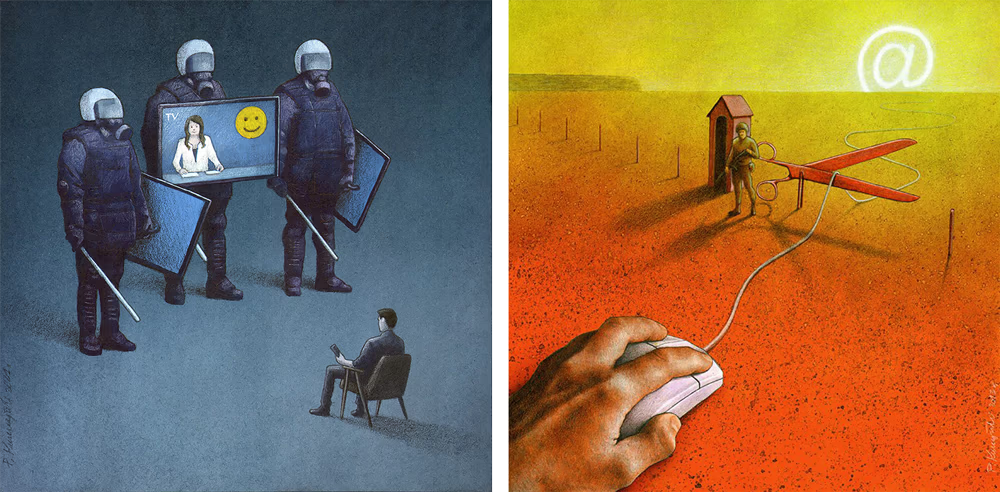
Ecology
Humanity leaves an irreparable mark on Earth without considering the conditions in which future generations will live. Every decade, this footprint becomes more noticeable and impactful for all inhabitants of the planet. The melting of glaciers, the disappearance of certain animal species, and poor air and water quality in some regions testify to this. Pawel Kuczynski does not ignore this theme, making it clear that ecological issues demand greater attention.
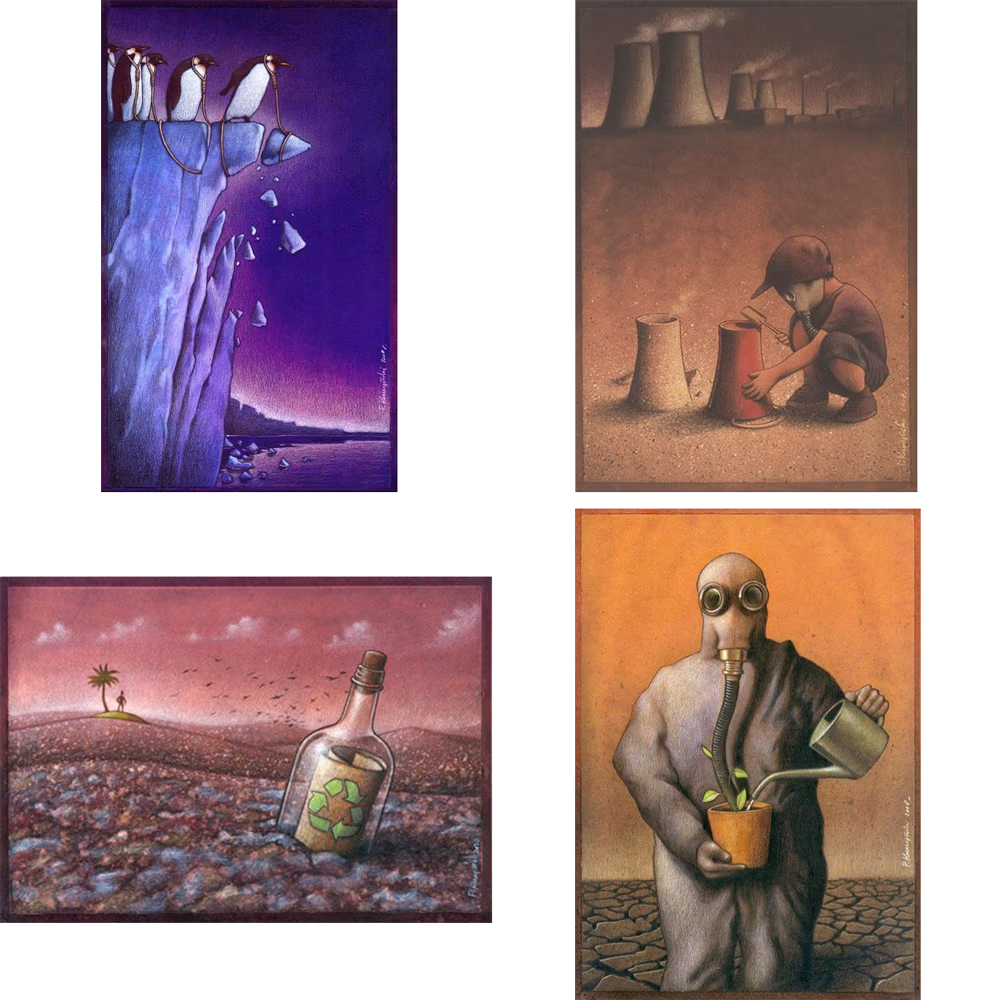
War
Every war is monstrous and meaningless. Thousands of books and films depict its horrors, and firsthand accounts from survivors are terrifying, seemingly screaming: "This must never happen again!" Yet wars continue to be started, supported, and profited from. In 2022, human lives are still not the top priority—wars are evidence of this. Pawel Kuczynski condemns all military conflicts through his works, making his stance against war unequivocally clear.
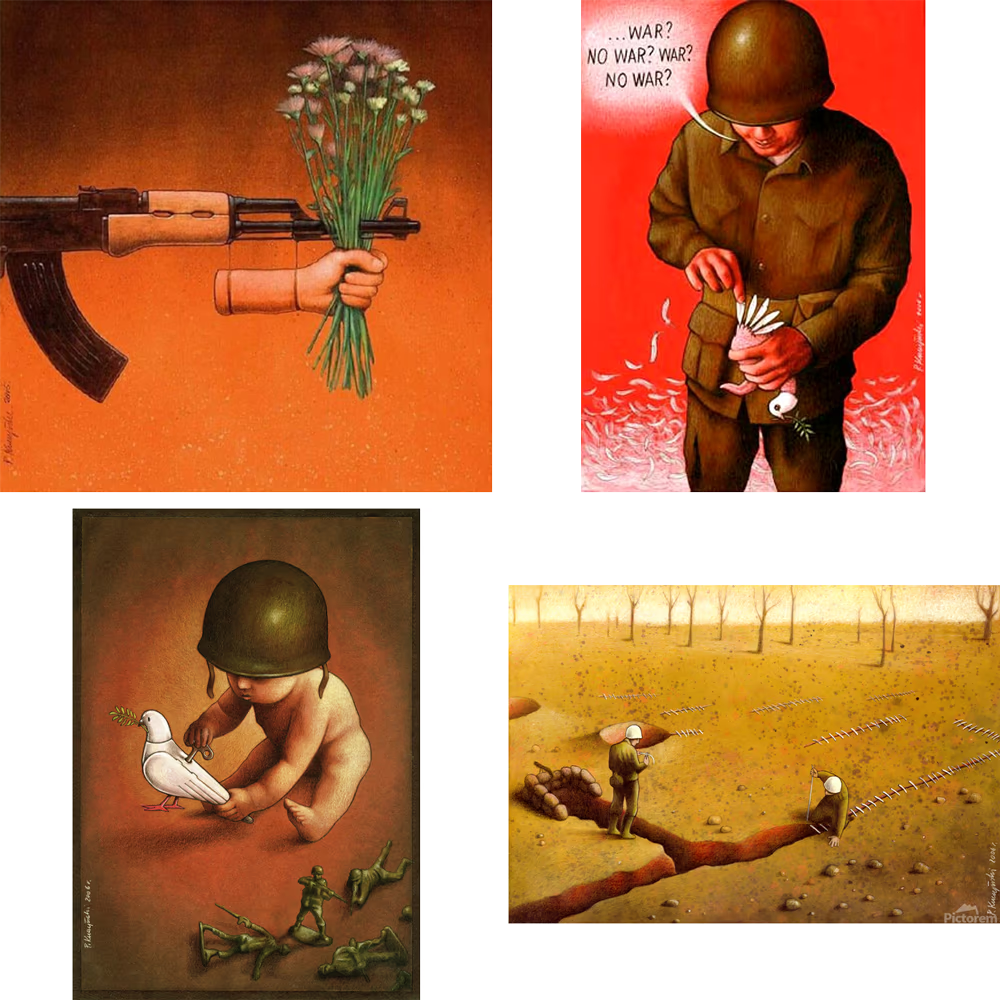
Concept Substitution
We aim to interpret the context of Pawel Kuczynski’s works from the viewer’s perspective. Why is this important? To better understand the language of his illustrations, one must grasp the context of specific fields of knowledge, stay informed about global events, and comprehend societal trends. We do not claim to perfectly convey the context of Pawel’s work and may even be mistaken at times. However, our editorial team believes it is essential to listen to a talented artist who cares deeply about the state of the world, the challenges humanity currently faces, and those it will inevitably confront in the future.

Pawel Kuczynski: Explanation
We aim to interpret the context of Pawel Kuczynski’s works from the viewer’s perspective. Why is this important? To better understand the language of his illustrations, one must grasp the context of specific fields of knowledge, stay informed about global events, and comprehend societal trends. We do not claim to perfectly convey the context of Pawel’s work and may even be mistaken at times. However, our editorial team believes it is essential to listen to a talented artist who cares deeply about the state of the world, the challenges humanity currently faces, and those it will inevitably confront in the future.

An uneducated ignoramus always finds a "killer" argument heard on TV.
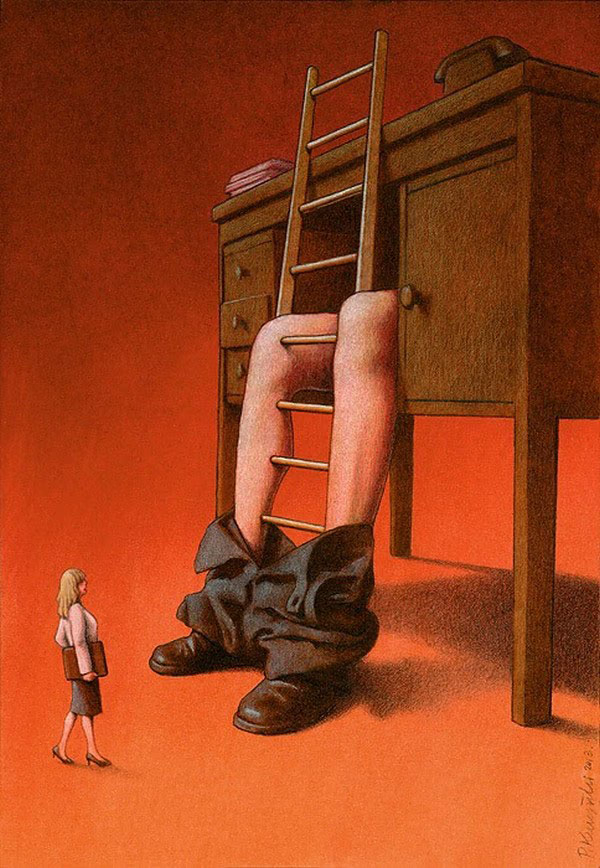
Career opportunities for women are sometimes directly linked to sexual harassment.
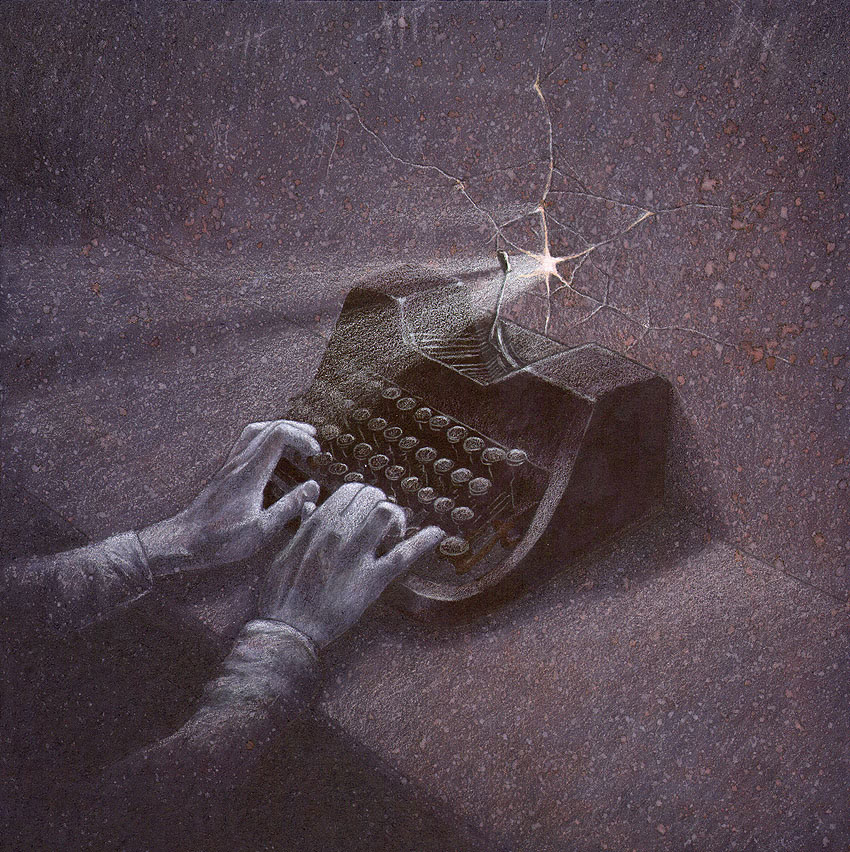
Words can break any wall.
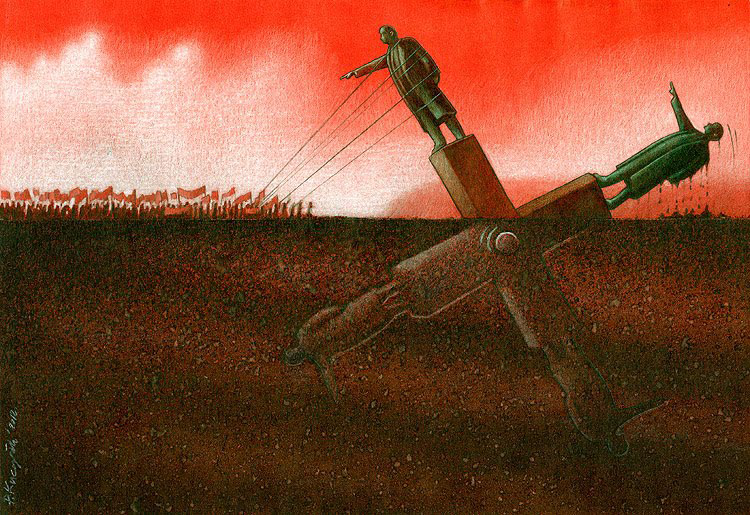
Revolutions replace one dictator with another.
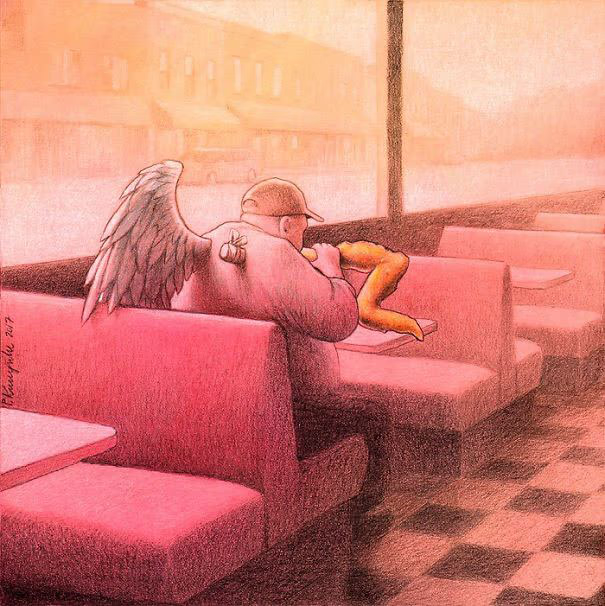
Satisfying immediate needs at your own expense.
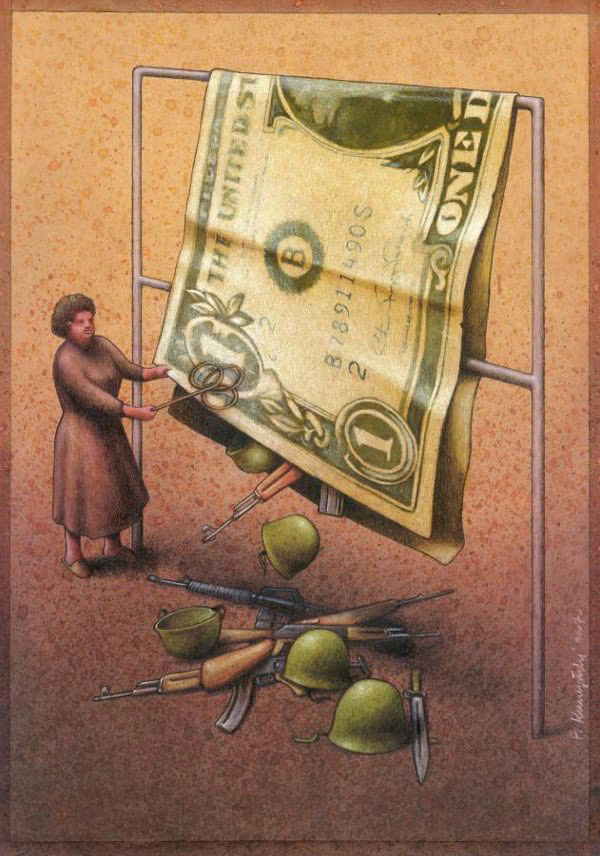
Every dollar contains profits from war.
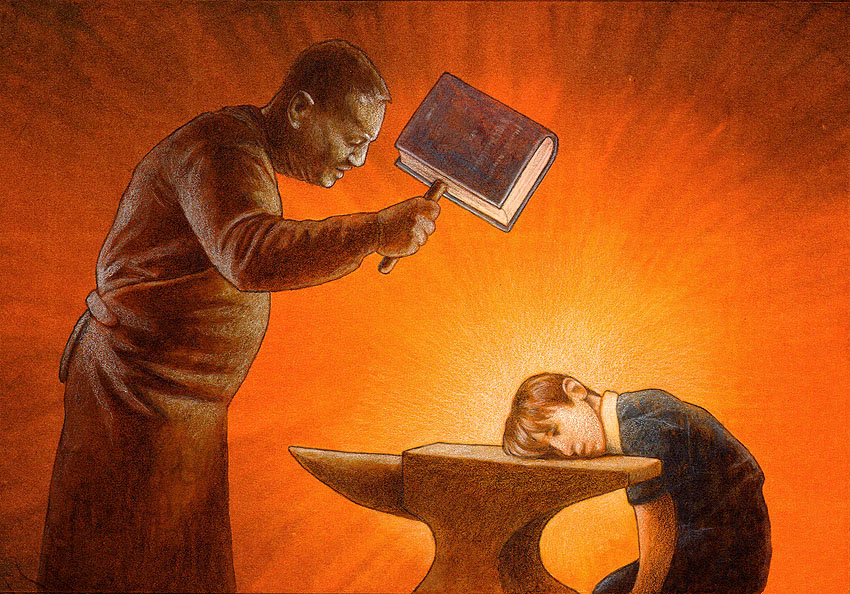
Education through coercion.
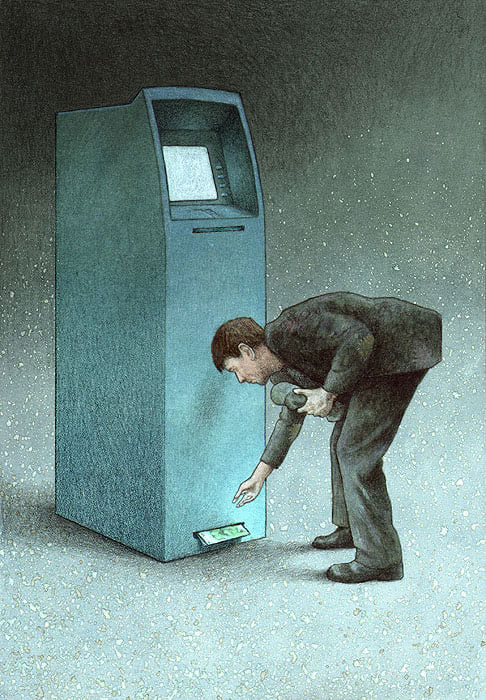
Poor people face humiliation even when receiving their earned wages.

"Privacy" on the internet.
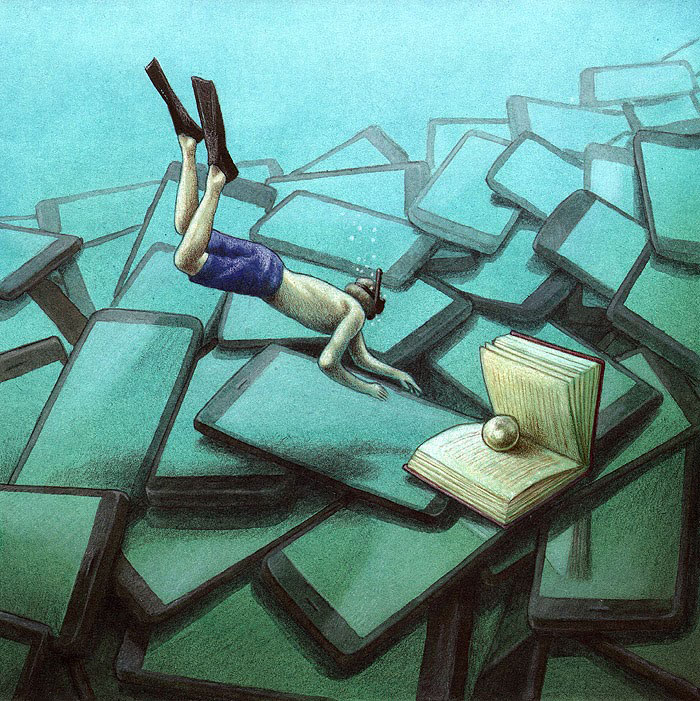
A good book is as valuable as a pearl at the bottom of the ocean—and just as rare.
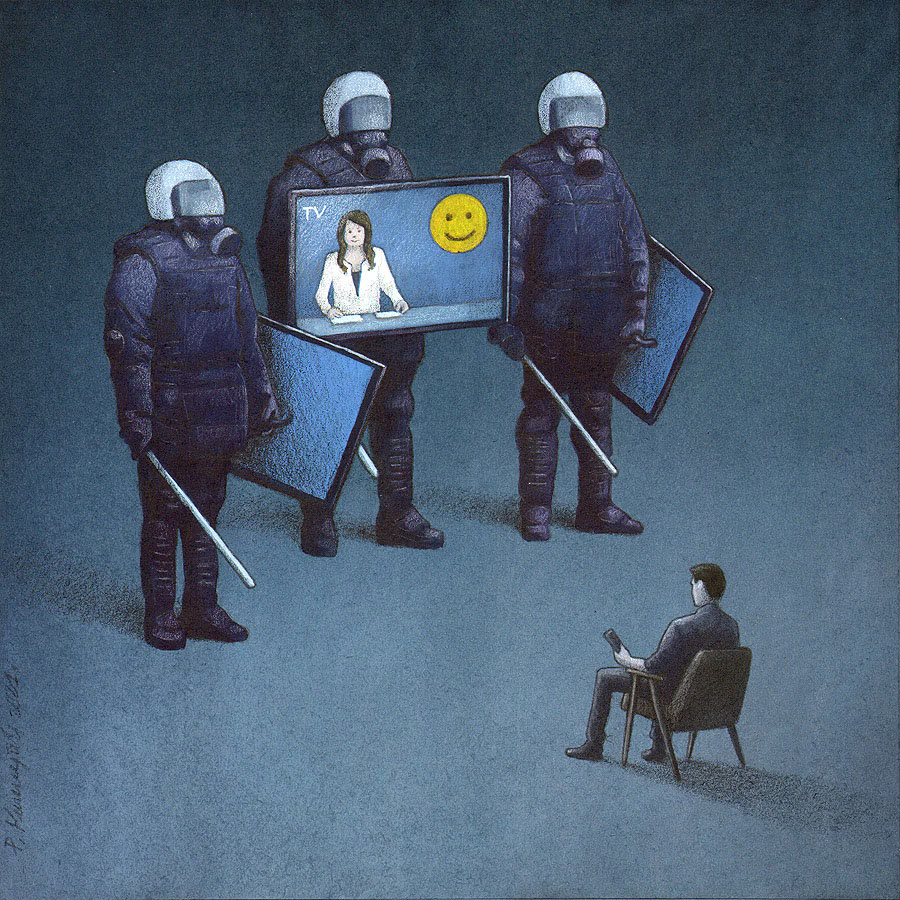
Control over the assimilation of propaganda.
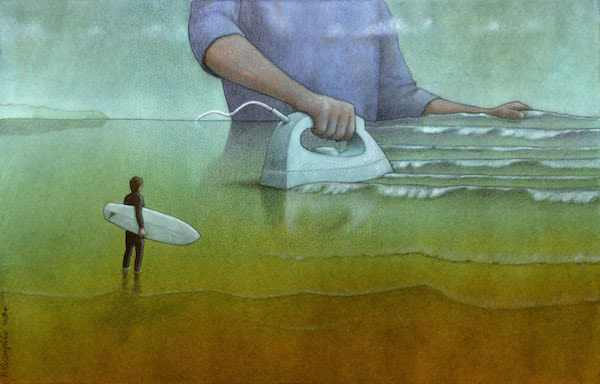
The older generation’s desire to control the lives and activities of the younger.

Addiction to smartphones.
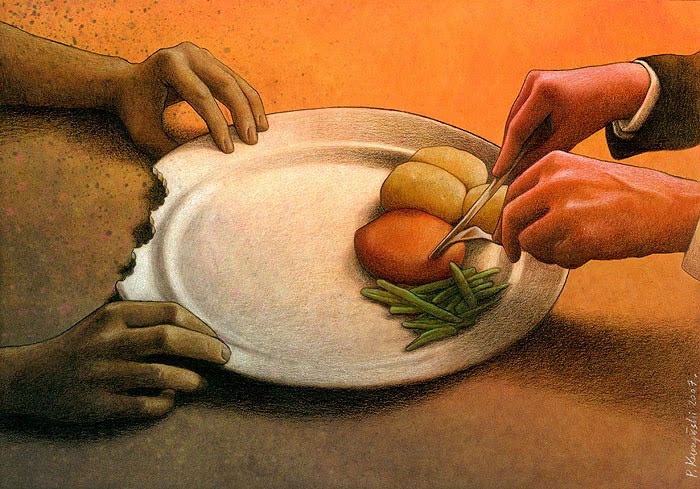
Uneven distribution of food around the world.
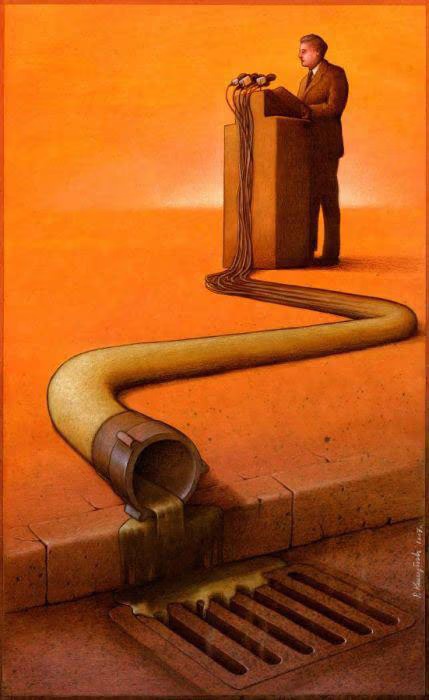
Sometimes words and promises mean nothing.
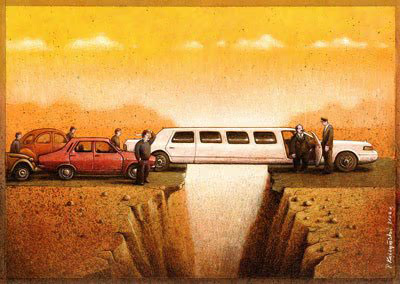
Wealthy people have more opportunities to overcome life’s hardships.
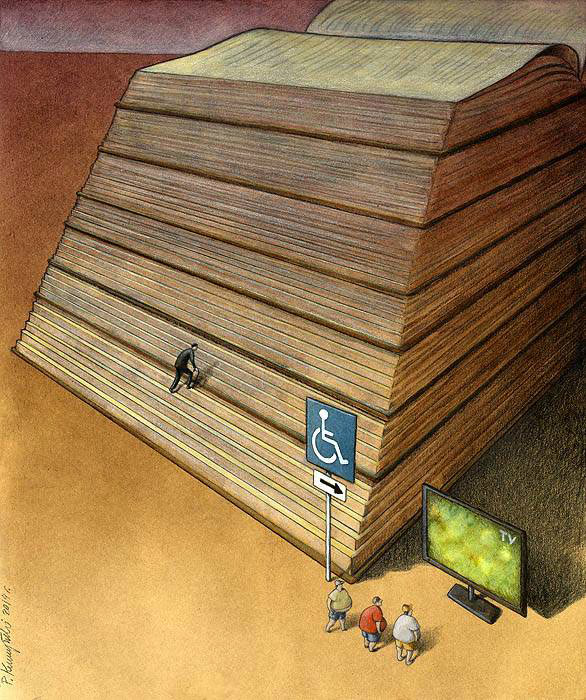
Gaining knowledge requires hard work.
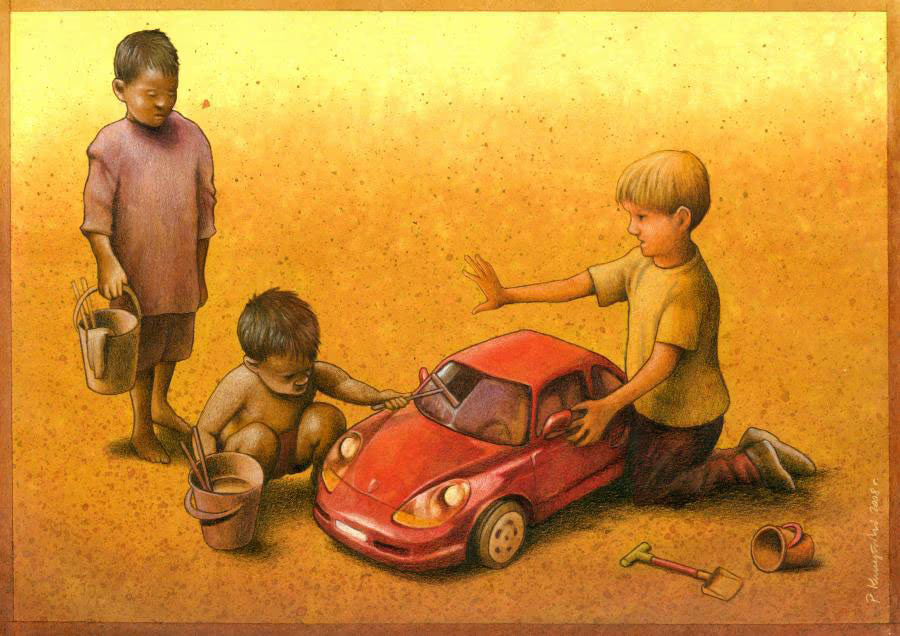
A fate predestined from childhood.
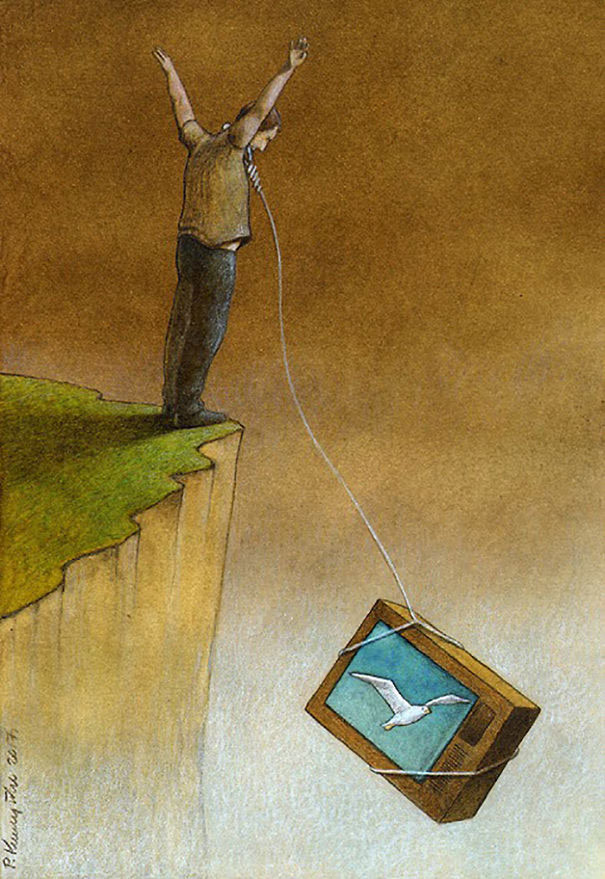
Blind trust.
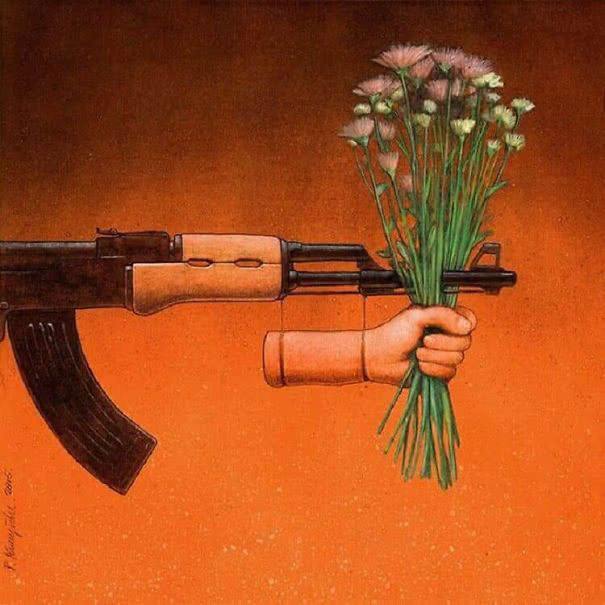
Aggression disguised as benevolence.
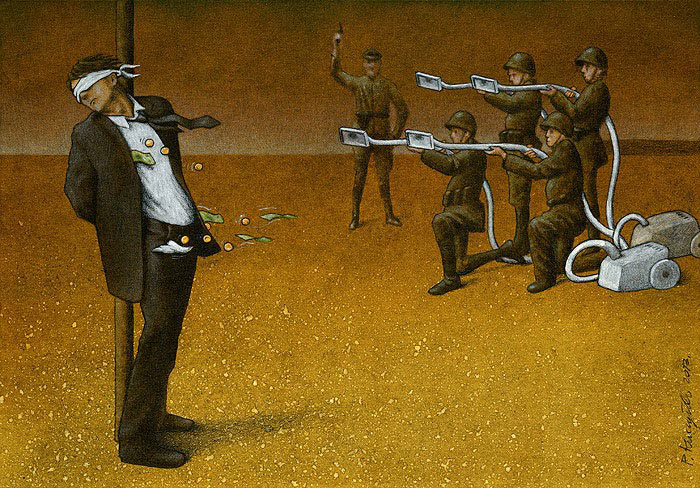
Wars are fought at the expense of ordinary people.
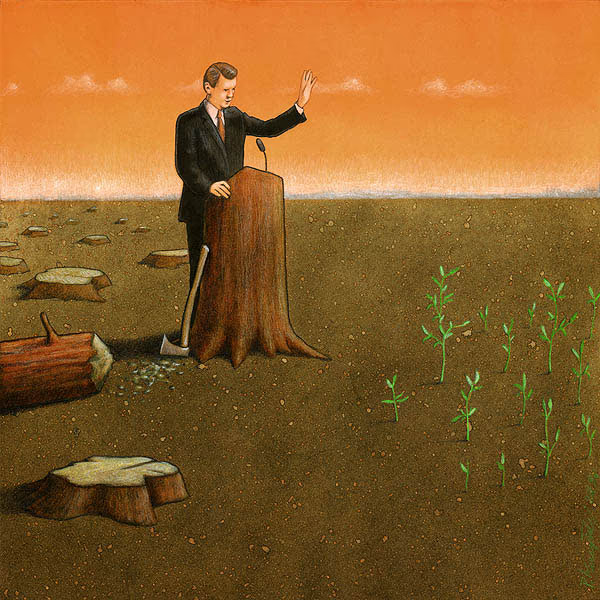
The words that deceived one generation will deceive the next.
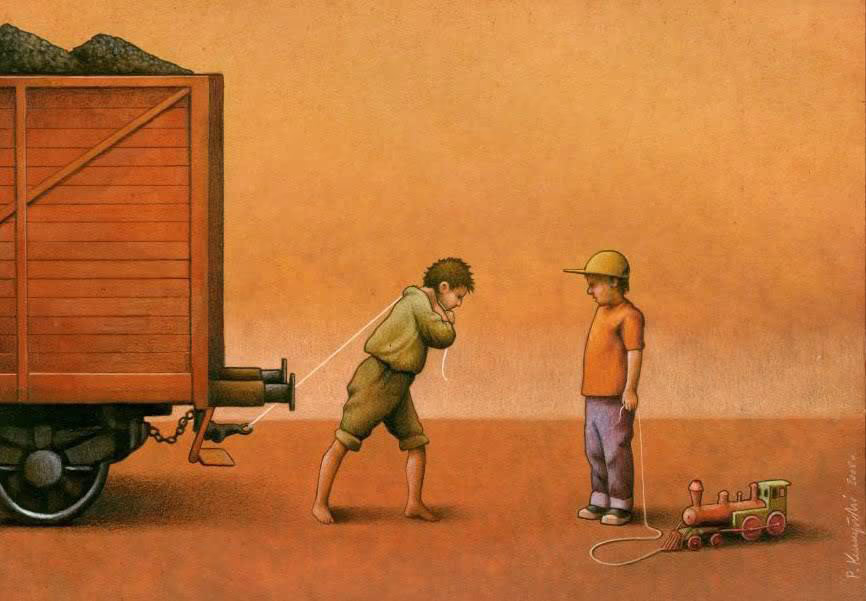
Childhood is not the same for everyone.
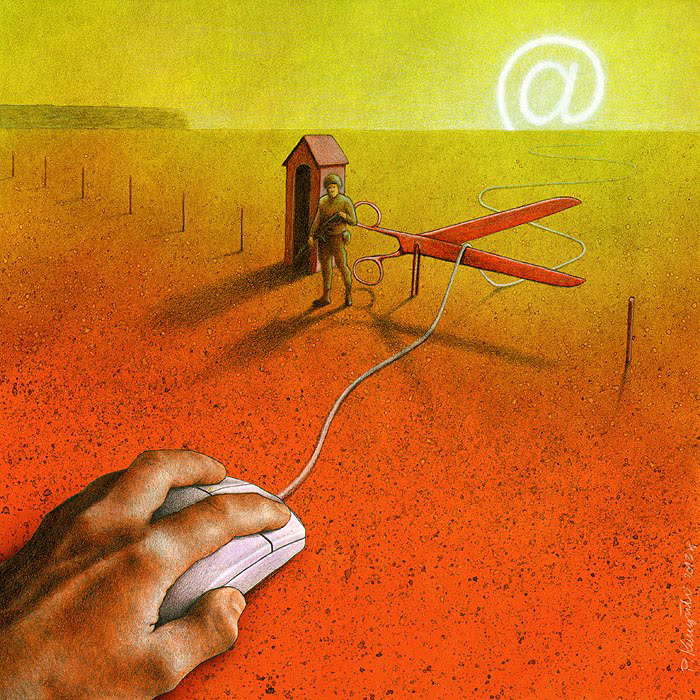
Restricting access to information.
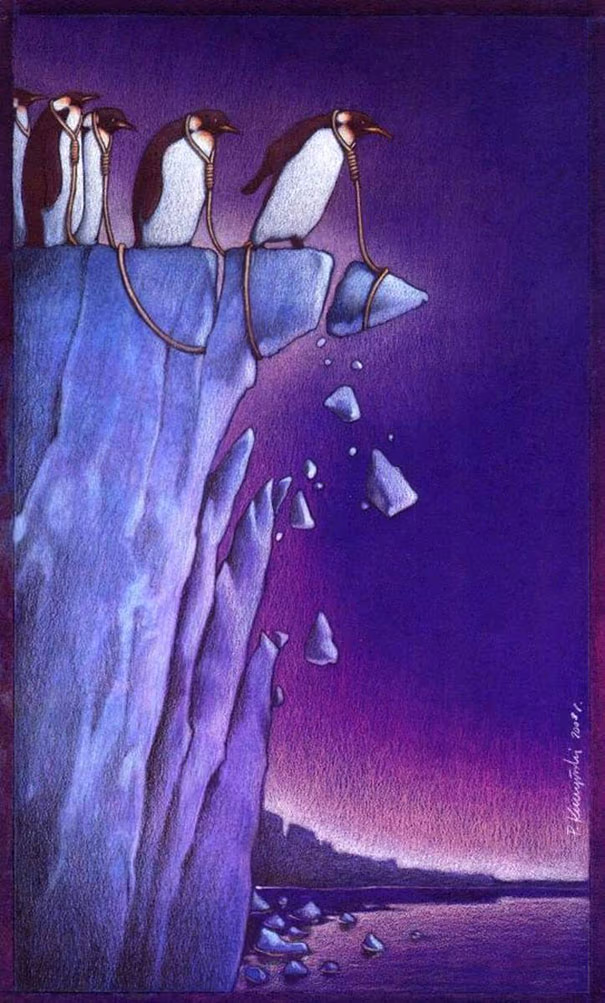
Global warming is destroying Earth’s inhabitants.
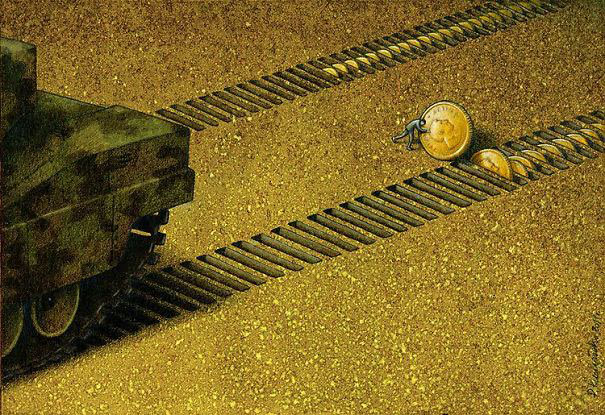
War provides an opportunity for profit.
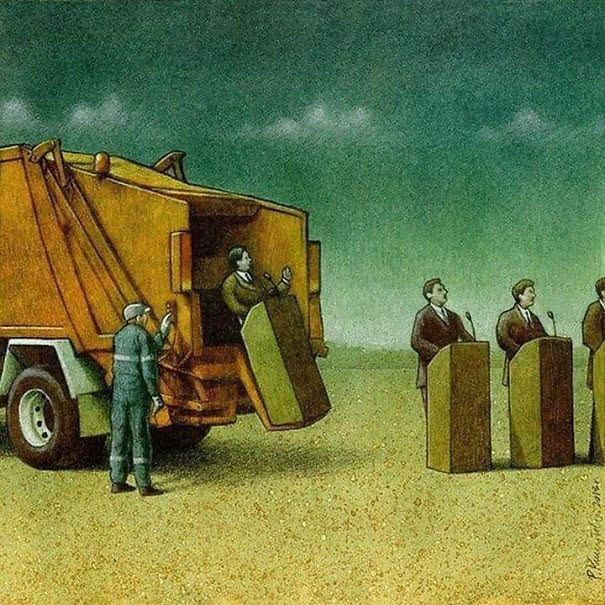
Most public figures are worthless.
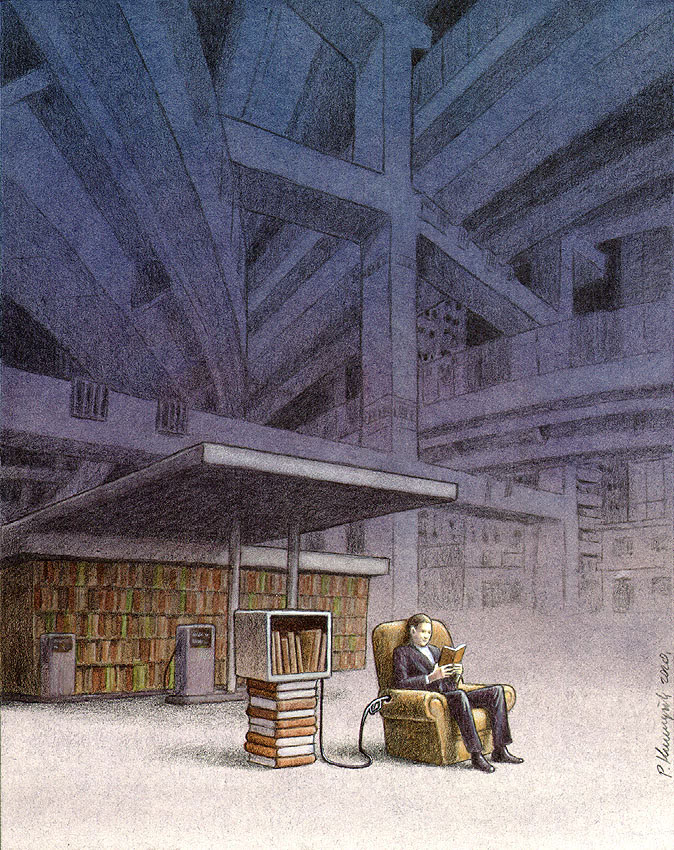
Reading books is essential.
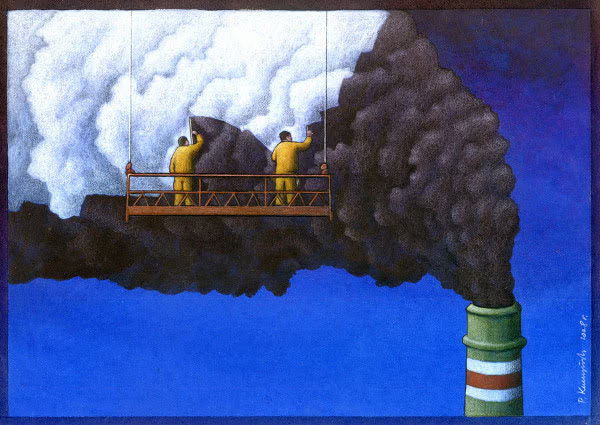
Distortion and falsification of problems.
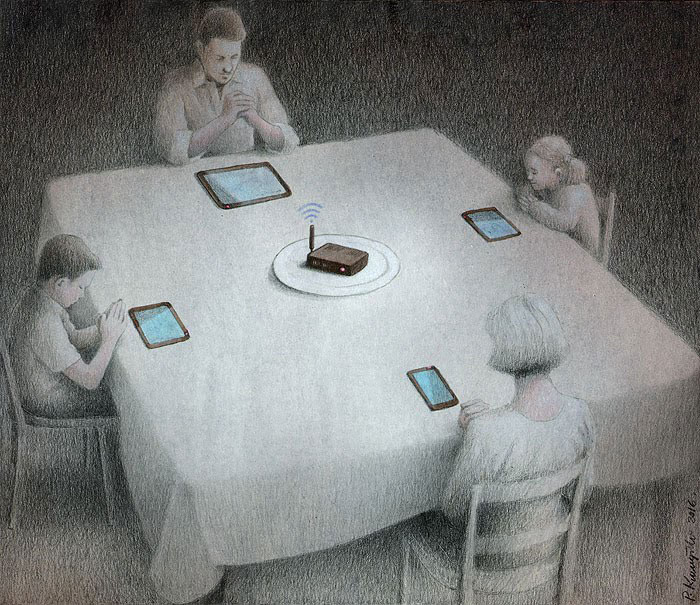
New family values.
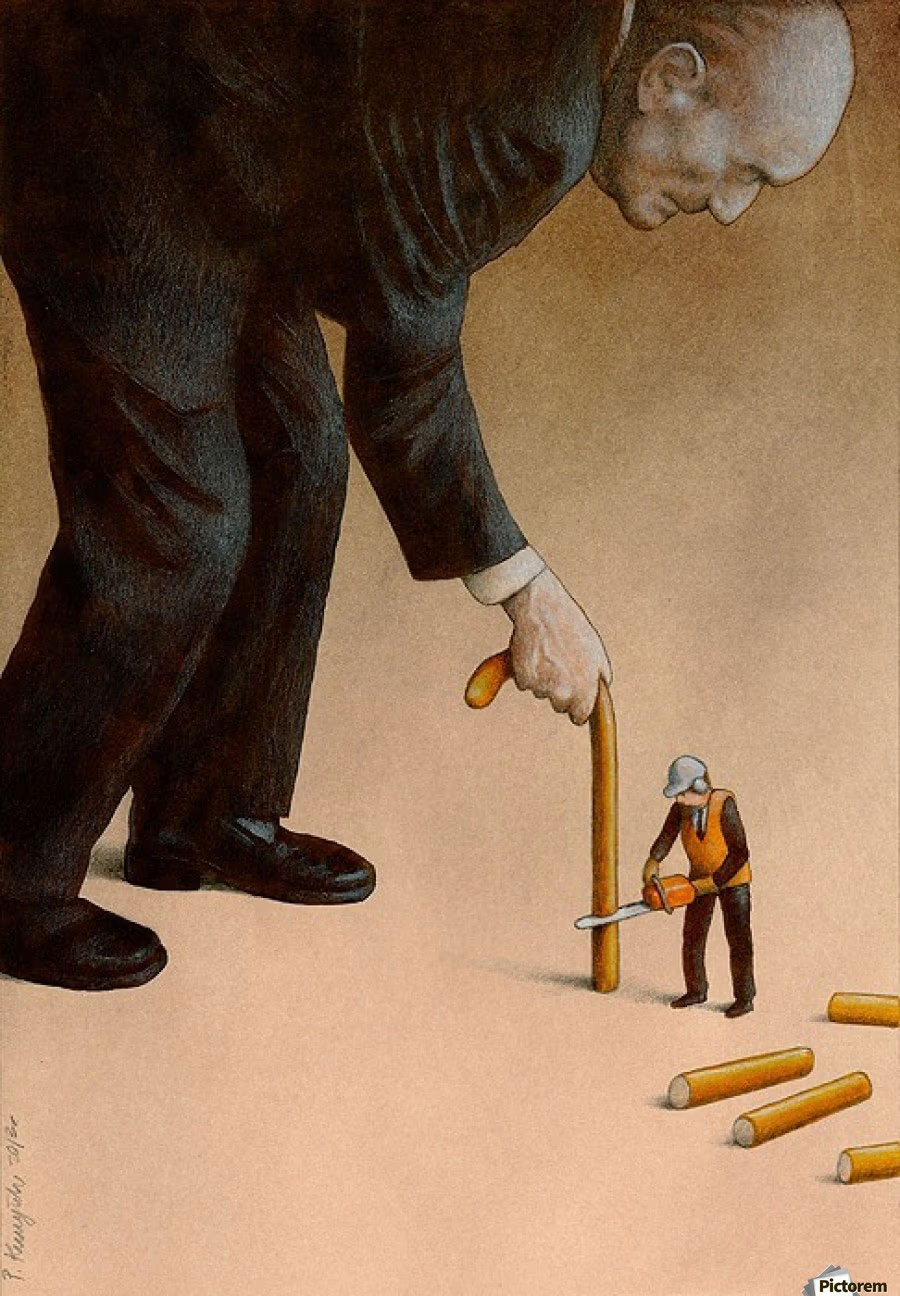
Infringement on the rights of the older generation.
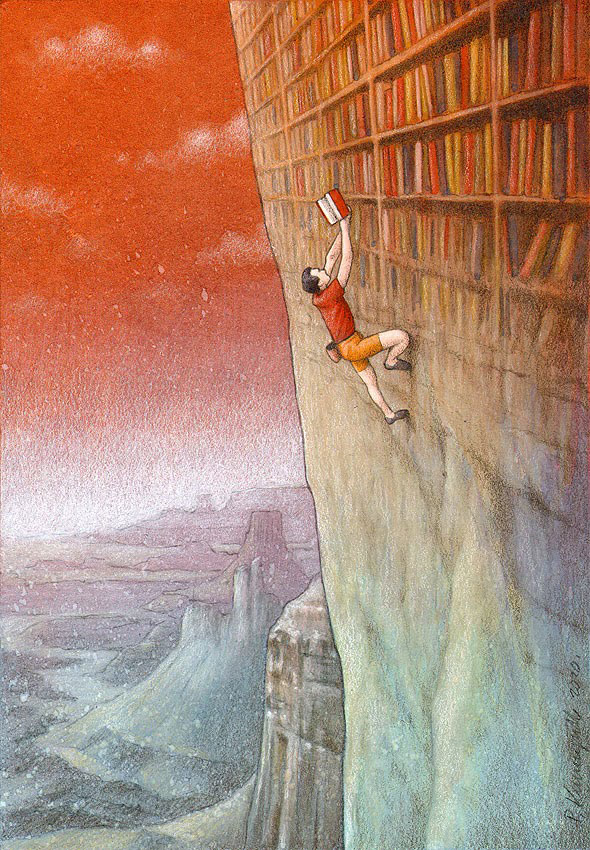
Books lift people to great heights.
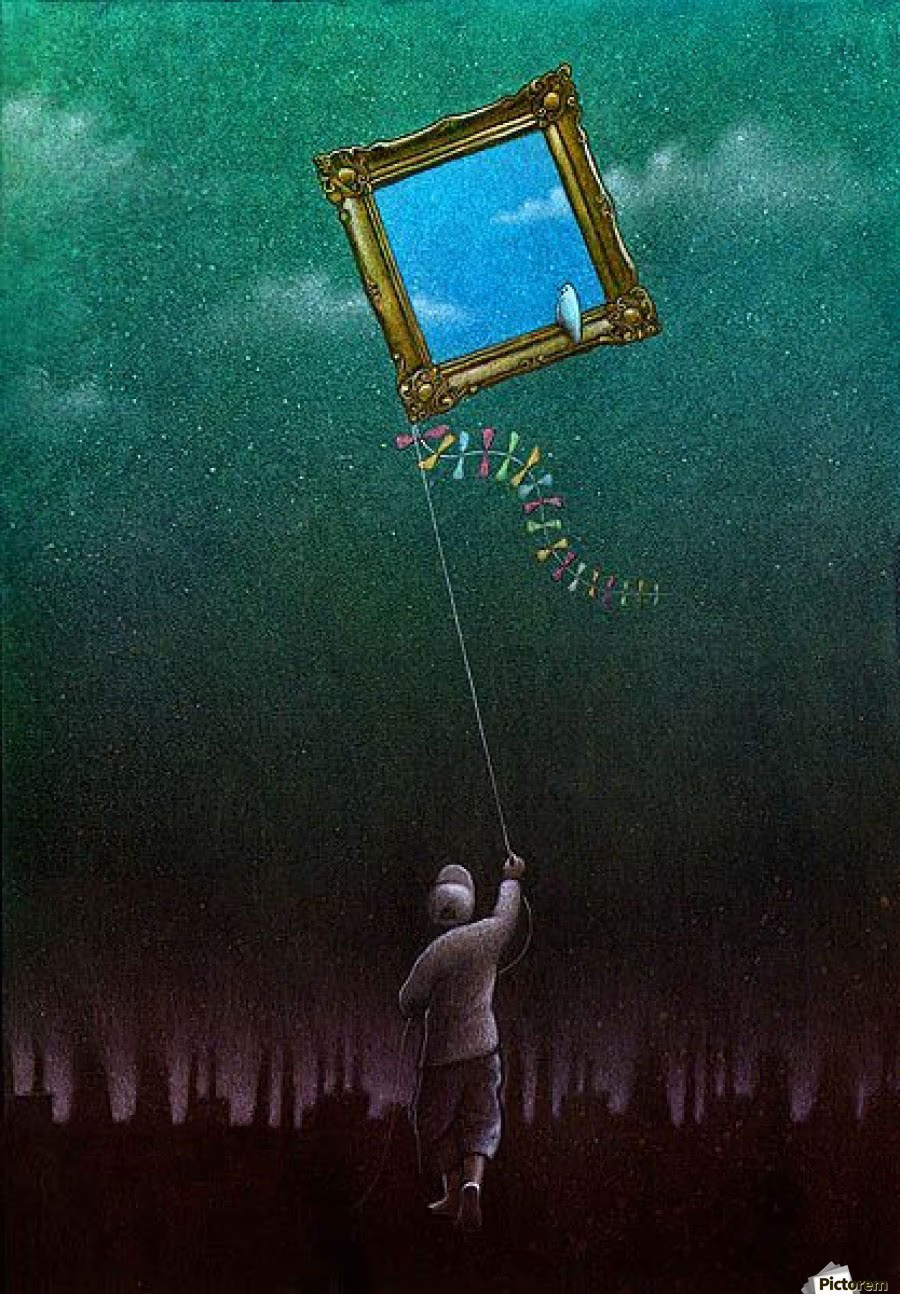
Dreams stay with you even in the darkest times.
Pawel Kuczynski: Meaning
Pawel Kuczynski has created an extensive body of illustrations on a wide range of topics. What is astonishing is his profound understanding of the problems that concern people today. The precision with which Pawel depicts complex processes and the depth of meaning in his works are truly admirable. The purpose behind such an ambitious project is clear: to hold a mirror to humanity, encouraging reflection on our actions and their consequences.
Pawel Kuczynski and another artists

Straightforward and profound: The illustrations of Pawel Kuczynski and their vast meaning
How can the essence of an entire country or generation be conveyed in a single illustration? Pawel Kuczynski masterfully captures what resonates with millions

How to make a picture as a mirror
Angel Boligan depicts our "absurdities and contradictions" accurately

